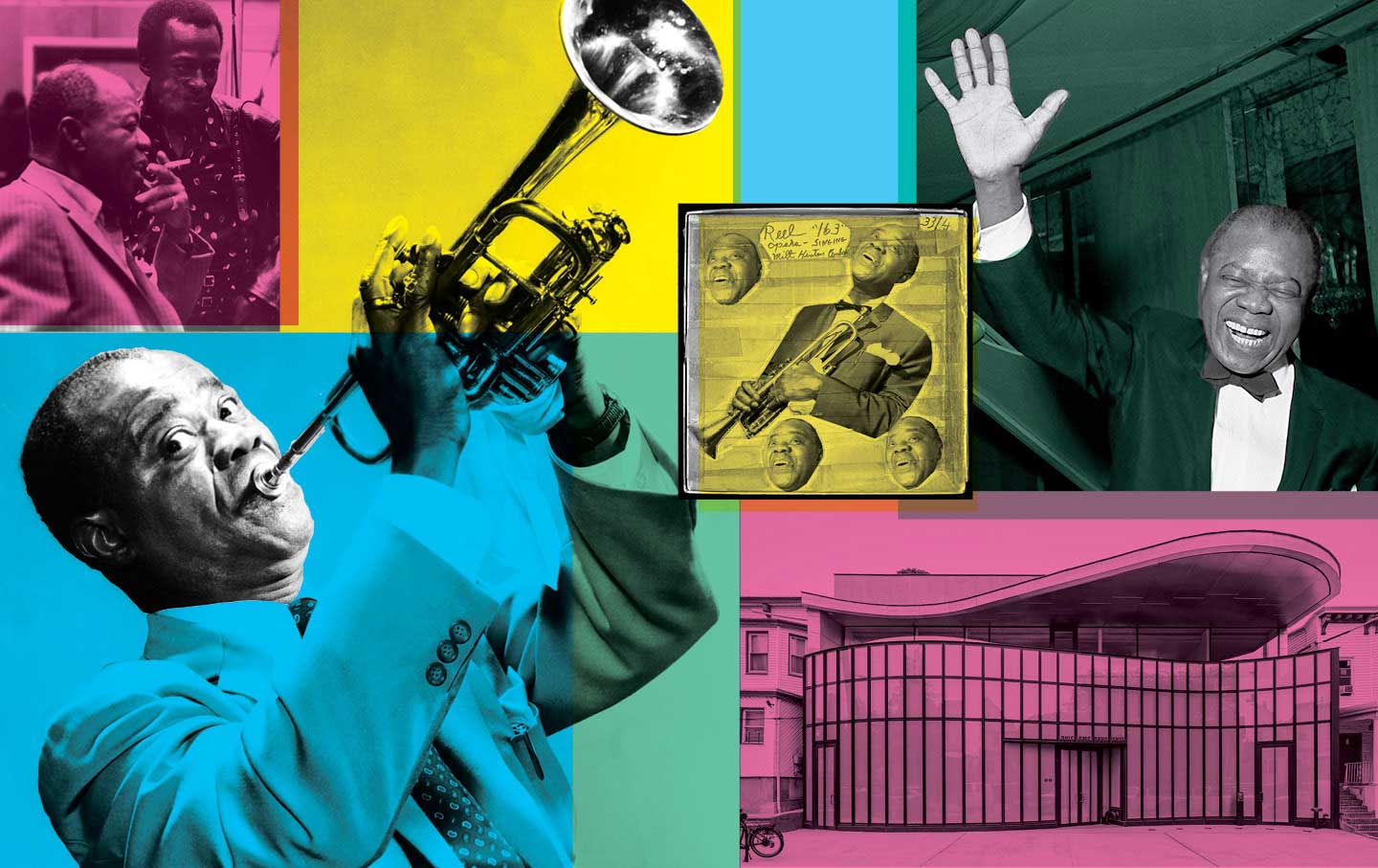Unveiling Louis Armstrong's Legacy and Archives
Основные понятия
Louis Armstrong revolutionized music through his innovative rhythms and melodies, leaving a lasting legacy that continues to inspire contemporary artists.
Аннотация
Louis Armstrong's archives reveal the multifaceted genius behind the iconic musician. From his groundbreaking contributions to jazz to his role as a cultural icon, Armstrong's impact on American music is unparalleled. His meticulous preservation of personal artifacts and recordings offers a glimpse into the life of a musical pioneer who defied conventions and reshaped the landscape of jazz. The ongoing debate surrounding his legacy underscores the complexity of his influence, challenging traditional narratives and inviting new perspectives on his enduring significance in music history.
Louis Armstrong Gets the Last Word on Louis Armstrong
Статистика
"By 1930, if you aren’t playing or singing like him, you’re out of work."
"Armstrong’s rhythmic control could be his greatest legacy."
"Louis wasn’t as politically naïve as some might have thought."
"Armstrong’s 1959 All-Stars were a relaxed and soulful collection of the highest-caliber musicians."
"Armstrong plays like he sings, without pretense or artifice."
Цитаты
"Louis Armstrong was the first person to play behind the beat on record." - Phil Woods
"You can’t play anything on a horn that Louis hasn’t played—I mean even modern." - Miles Davis
"It’s hard to think of another jazz musician who continues to create contemporary debate like Louis Armstrong." - Sacha Jenkins
Ключевые выводы из
by Ethan Iverso... в www.thenation.com 10-30-2023
https://www.thenation.com/article/culture/louis-armstrong-archive/
Дополнительные вопросы
How did Louis Armstrong navigate societal expectations and racial challenges throughout his career?
Louis Armstrong navigated societal expectations and racial challenges with resilience, grace, and a pioneering spirit. Born in New Orleans one generation removed from slavery, he witnessed lynchings as a child and was part of the Great Migration. Despite facing systemic racism and discrimination, Armstrong rose to become a multimedia superstar during a time when African Americans faced significant barriers in the entertainment industry.
Armstrong used his platform to speak out against segregation, even calling out President Dwight Eisenhower over integration. He carefully curated his image and legacy by creating scrapbooks of reviews, photographs, letters, and recording home audiotapes starting in 1950. These efforts show how he took control of his narrative amidst conflicting perceptions within both Black communities and white jazz critics.
What impact did Louis Armstrong have on shaping modern jazz beyond his musical contributions?
Louis Armstrong's impact on shaping modern jazz extended far beyond his musical contributions. While he was renowned for revolutionizing trumpet playing techniques like playing behind the beat—a practice that influenced countless musicians—his legacy also lies in challenging conventional narratives about race, music, and cultural identity.
Armstrong's rhythmic innovations fundamentally changed the way people played their instruments and sang during the Jazz Age. His ability to swing bands effortlessly showcased his mastery of rhythm control—a skill that became synonymous with jazz itself. Additionally, through collaborations with other artists like Duke Ellington and King Oliver, Armstrong helped define what it meant to "swing" in jazz music.
How does Louis Armstrong's legacy challenge conventional narratives about race, music, and cultural identity?
Louis Armstrong's legacy challenges conventional narratives about race by showcasing how an African American artist could rise above adversity to become an international icon despite facing criticism from both white critics who accused him of selling out as well as some members of Black communities who viewed him through different lenses.
His meticulous preservation of archives reflects a deliberate effort to shape how history would remember him—an act that defied stereotypes often associated with Black entertainers at the time. By engaging with political issues such as school segregation publicly while maintaining artistic integrity throughout various stages of his career—from early recordings with Hot Five ensembles to later big band performances—Armstrong demonstrated how one could be politically aware without compromising artistry or commercial success.
0
